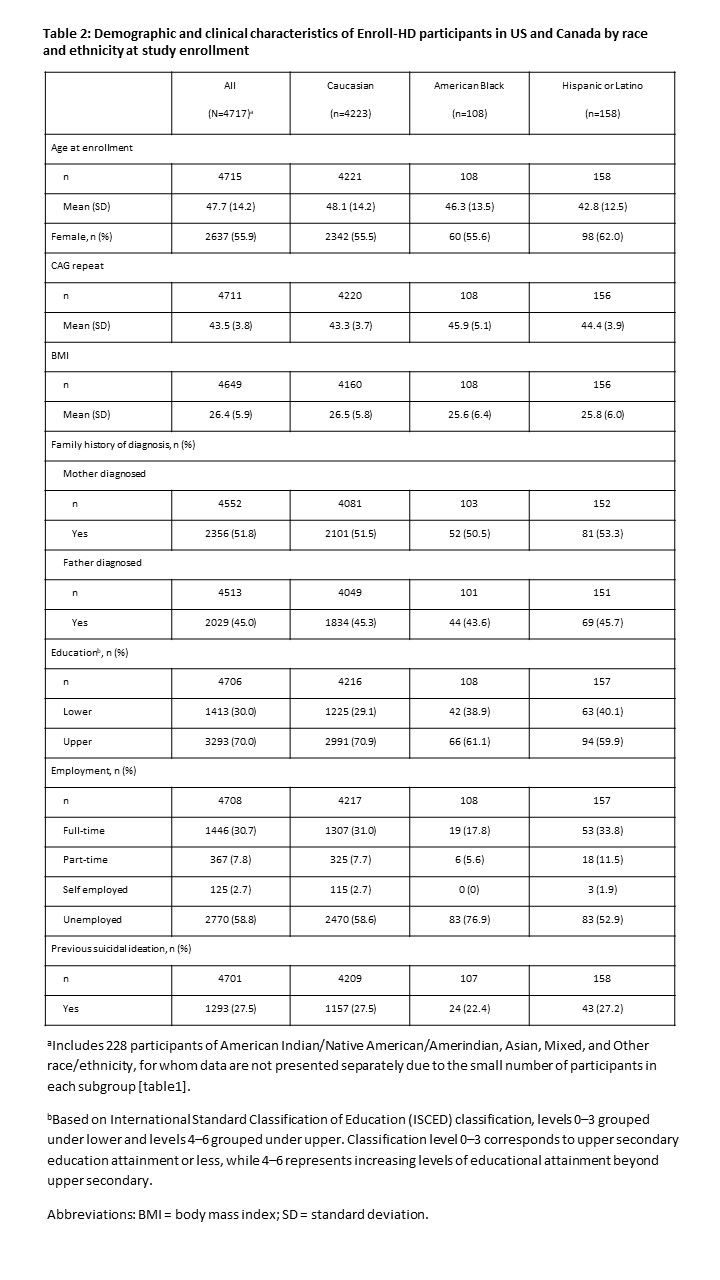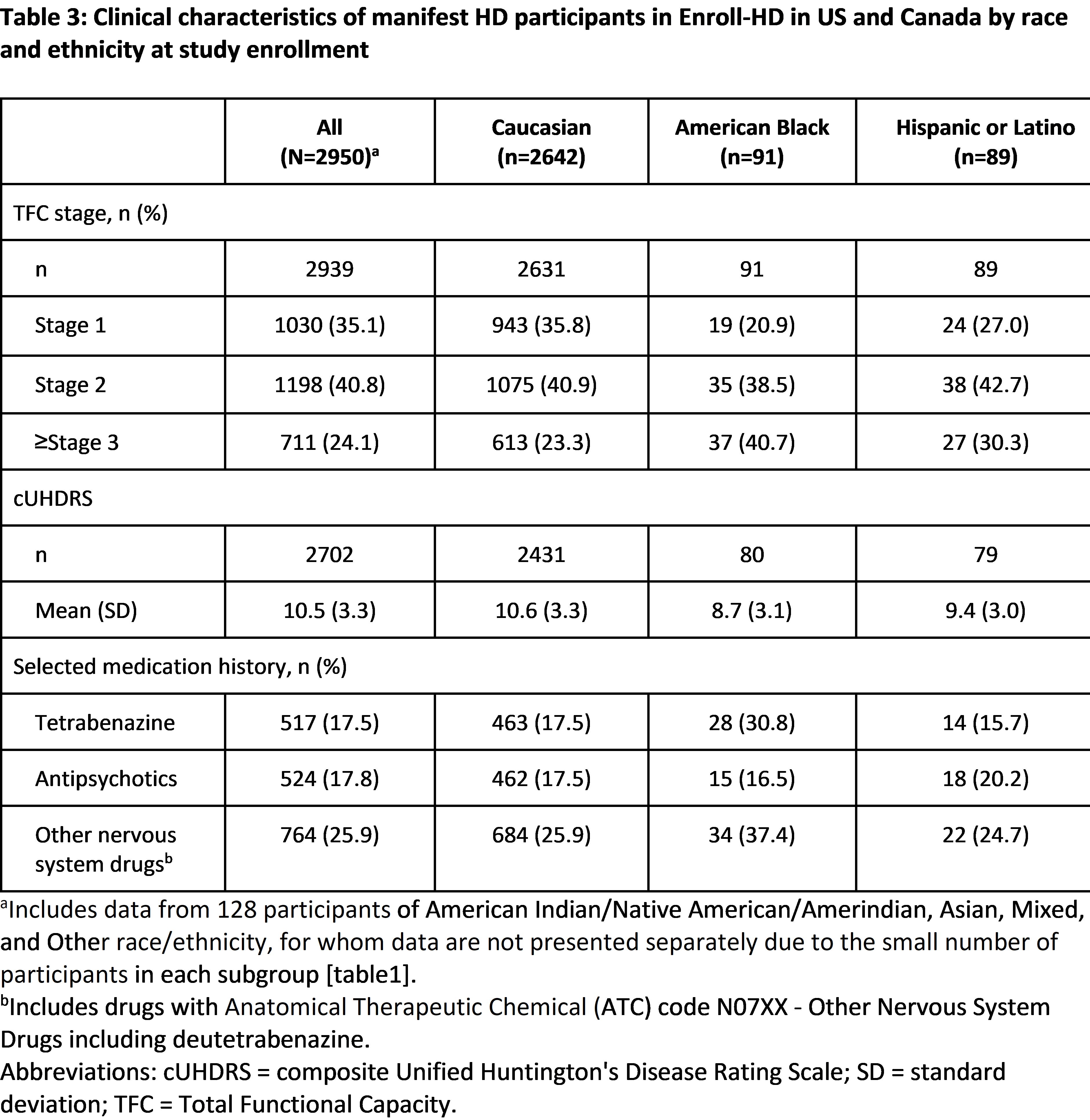Category: Huntington's Disease
Objective: To characterize racial and ethnic diversity among Huntington’s disease (HD) gene expansion carriers (GECs) in the Enroll-HD study in the US and Canada.
Background: Diversity in research is important to improve generalizability and reduce inequalities in care. However, there are limited data on HD among racial and ethnic minorities in the US and Canada. Enroll-HD is the largest observational study of HD families globally; here, we describe the racial and ethnic composition of Enroll-HD.
Method: Data from the Enroll-HD (NCT01574053) observational study (US/Canada) were used (Periodic Dataset 5, cutoff 10/31/20). Race/ethnicity were summarized by premanifest and manifest HD. Demographic and clinical characteristics at study enrollment were described by race/ethnicity. Total Functional Capacity (TFC), composite Unified Huntington’s Disease Rating Scale (cUHDRS) [1], and selected medication history at study enrollment were summarized for participants with manifest HD by race/ethnicity.
Results: We identified 4717 participants with HD (premanifest HD, 1767; manifest HD, 2950). The majority of participants were Caucasian (89.5%; n=4223), 3.3% (n=158) were Hispanic or Latino, 2.3% (n=108) were American Black, and 4.8% (n=228) were “Others” [table1]. Age and proportion of females were similar across racial/ethnic groups [table2]. Over half of the participants were unemployed, with the highest unemployment reported among Black participants [table2]. Mean (SD) CAG repeat length at enrollment was 43.5 (3.8) and was highest among Black participants (45.9 [5.1]) [table2]. Among participants with manifest HD, 24.1% (n=711) had TFC ≥Stage 3 and mean (SD) cUHDRS score was 10.5 (3.3), with variability observed across racial/ethnic groups; 40.7% (n=37) of Black participants had TFC ≥Stage 3 and cUHDRS score was 8.7 (3.1) [table3].
Conclusion: This study describes the racial and ethnic composition of Enroll-HD GECs, a first step in understanding potential healthcare inequities in HD. Although results suggest HD is predominant in Caucasians, another interpretation is there are potential disparities in research participation and access among the North American HD population. Future studies from large population-based datasets can elucidate the reasons for racial/ethnic differences in HD clinical characteristics and, ultimately, improve quality of care for all people with HD.
References: Schobel SA, Palermo G, Auinger P, et al. Motor, cognitive, and functional declines contribute to a single progressive factor in early HD. Neurology 2017; 89(24): 2495-2502.
To cite this abstract in AMA style:
N. Dahodwala, V. Sung, P. Gonzalez-Alegre, E. Korner, A. Patel, J. Ko, J. Ta, J. Sanchez-Ramos. Characterizing Racial and Ethnic Diversity Among Enroll-HD Participants in the US and Canada [abstract]. Mov Disord. 2021; 36 (suppl 1). https://www.mdsabstracts.org/abstract/characterizing-racial-and-ethnic-diversity-among-enroll-hd-participants-in-the-us-and-canada/. Accessed January 4, 2026.« Back to MDS Virtual Congress 2021
MDS Abstracts - https://www.mdsabstracts.org/abstract/characterizing-racial-and-ethnic-diversity-among-enroll-hd-participants-in-the-us-and-canada/



